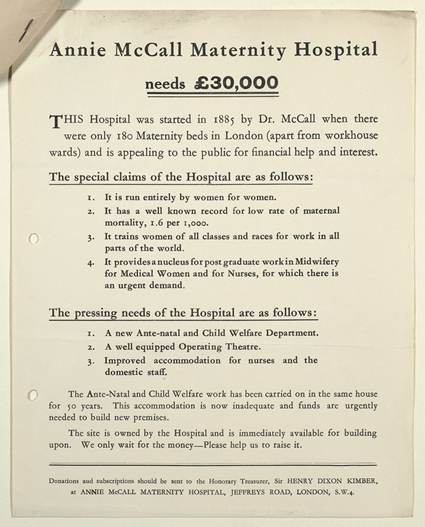1937: Annie McCall Maternity Hospital Appeal

Hospital fundraising appeals, like this example for the Annie McCall Maternity Hospital, often highlighted the history and characteristics of the hospital, conveying to the reader why it was worthy of their donations.
The bottom of this poster requests both donations and subscriptions. Hospital subscribers would pay a regular financial contribution to a hospital in return for access to hospital services. Subscribers were also entitled to vote in general meetings and elect members of the hospital’s managing committee.
Donors and subscribers to a given hospital were often named individually in that hospital’s annual report.